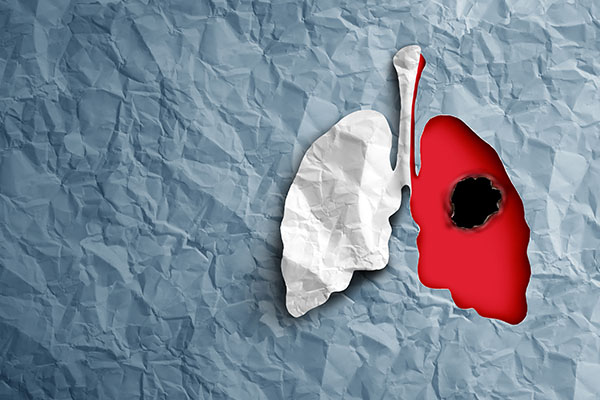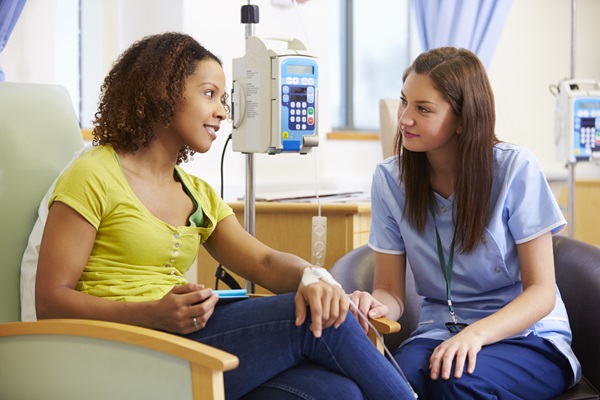How an Oncologist Tests for Lung Cancer

Oncologists specialize in the diagnosis and treatment of lung cancer. There are two main types of lung cancer, and it is crucial to obtain an accurate diagnosis to receive the right treatment and fight off the disease. Although a lung cancer diagnosis can be frightening, cancer is best treated when detected in its early stages. Therefore, it is important to know and understand the signs and symptoms of the disease and seek immediate treatment. Read on to learn more about how oncologists test for lung cancer and treat it.
What is an oncologist?
Oncologists are medical specialists who primarily diagnose, treat, and try to prevent various cancers. Some oncologists specialize in lung cancer or another specific type of cancer. For example, a radiation oncologist specializes in treating cancer with radiation. Other oncologists include medical oncologists, surgical oncologists, geriatric oncologists, gynecologic oncologists, and hematologist-oncologists.
Lung cancer is a type of cancer that begins in the lungs, the two organs responsible for taking in oxygen as we breathe. Though lung cancer begins in the lungs (hence, its name), the cancer cells can quickly spread to other body parts, from the lymph nodes to the brain. The disease most often occurs in people who smoke.
Common causes and risk factors of lung cancer
Smoking is the most common cause of lung cancer in most patients, either through self-use or second-hand. According to the Mayo Clinic, smoking causes lung cancer by damaging the cells that line the lungs. In addition, cigarette smoke is full of cancer-causing substances (carcinogens), and inhalation of these substances causes changes in the lung tissue almost immediately. However, lung cancer can occur in those who have never smoked or been exposed to second-hand smoke.
It is important to know and understand risk factors to prevent lung cancer. Aside from smoking and exposure to second-hand smoke, risk factors include previous radiation therapy, exposure to radon gas, exposure to asbestos and other carcinogens, and a family history of lung cancer. To help prevent acquiring the disease, we highly advise quitting smoking, avoiding second-hand smoke, testing the home for radon, avoiding carcinogens at the workplace, eating a nutritious diet, and exercising regularly.
Although there is no definitive cure, patients may recover from the disease, and many do not have recurrence or fall into remission. Modern advancements in early detection and treatment have greatly aided accelerated and long-term recovery. The earlier the disease is detected, the more desirable the results.
How oncologists diagnose lung cancer
Due to the severity and aggressive nature of the disease, it is possible to request a lung cancer check. Diagnosing lung cancer involves a variety of imaging tests and exams. We will begin by taking chest X-rays to determine any abnormalities in the lungs or surrounding tissues. We will also order lab tests, such as an advanced genomic test and nutrition panel. Once lung cancer is highly plausible, we will order a PET, CT scan, and endobronchial ultrasound.
In advanced cases, a patient may require a biopsy, in which we remove a small piece of tissue to examine and check for cancer cells. In addition, we will likely need to run an autofluorescence bronchoscopy, navigational bronchoscopy, and robotic bronchoscopy to better understand the type of cancer and stage a patient is experiencing. Once diagnosed, we will continue to run imaging and laboratory tests to monitor the size and progression of the tumor.
Treatments for lung cancer
There are a variety of lung cancer treatments that depend on the patient’s lung cancer type, lung cancer stage, and lung cancer treatment goals. Once a patient receives a diagnosis, we will review the treatment options, which may be just one or a combination of treatments.
The American Lung Association provides the most common treatment options for lung cancer, including surgery, chemotherapy, radiation therapy, targeted therapy, immunotherapy, supportive and palliative care, and complementary or alternative lung cancer therapies. Each type of treatment has its set of own complications and side effects, but some options may work better for certain individuals. We do our best to implement the most effective and reliable treatment for each patient to combat the disease.
Get a consultation today
Do not wait until your symptoms worsen to receive a diagnosis. Oncologists can provide preventative measures and help you get well before lung issues progress into a disease. We hope you have found this information beneficial. Our team can offer various treatments, information, and support from diagnosis to recovery. To learn more about a procedure or schedule an appointment, call us today.
To learn more about our services, visit https://lindenbergcancer.com or call our office at (856) 475-0876 to schedule an appointment.
Check out what others are saying about our services on Yelp: Lung Cancer in Marlton, NJ.
Recent Posts
Facing chemotherapy treatment can be overwhelming, even if it is the right thing for your health. When it comes to cancer and cancer treatment, there is only so much the patient can control. However, understanding what to expect and how to prepare can put some control back in the patient’s hands and help set them…
The stage of the cancer determines the type of prostate cancer treatment the oncologist will provide. This treatment can offer a multi-layered approach, ranging in levels of invasiveness. However, no matter what stage you are in, the earlier we can provide medical intervention, the better your chances of remission.Prostate cancer staging can be complex to…
Anemia can affect life in many ways, the most common of which is lowering energy. An oncologist can help patients with anemia renew their energy and lessen the impact of other common symptoms. This way, patients can minimize how anemia affects their overall health and well-being.Anemia is categorized as a blood disorder because it occurs…
A hematologist is specially trained to diagnose, treat, and manage blood disorders. Being referred to this medical specialist may cause some worry or concern. However, they can provide an accurate diagnosis and an effective treatment plan if blood abnormalities are found in your bloodstream.Hematology is the branch of medicine that studies blood, blood-forming organs, and…


